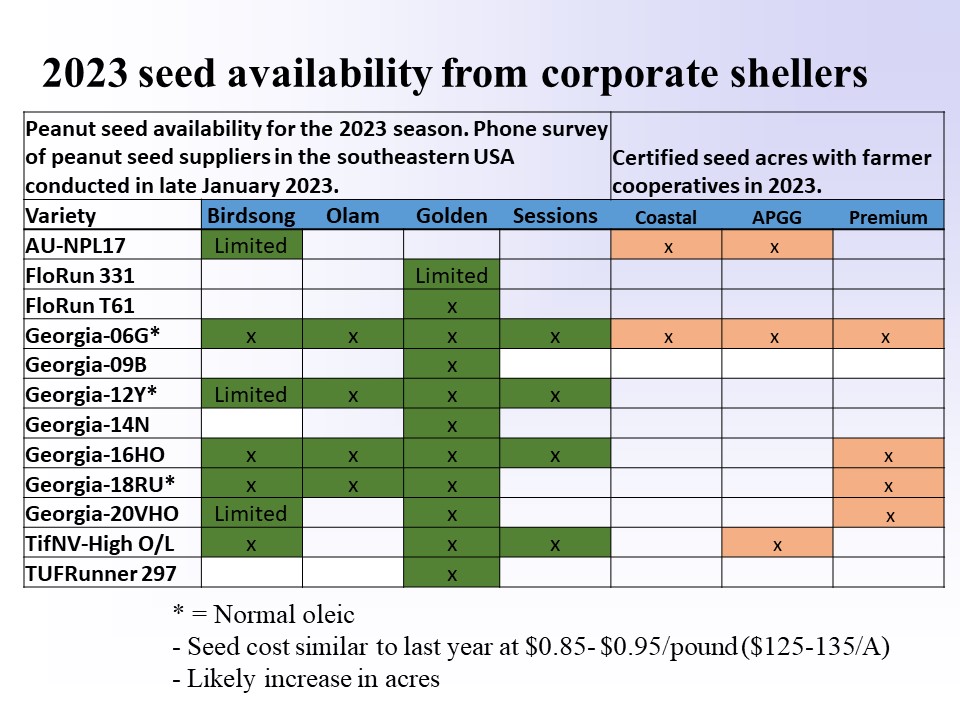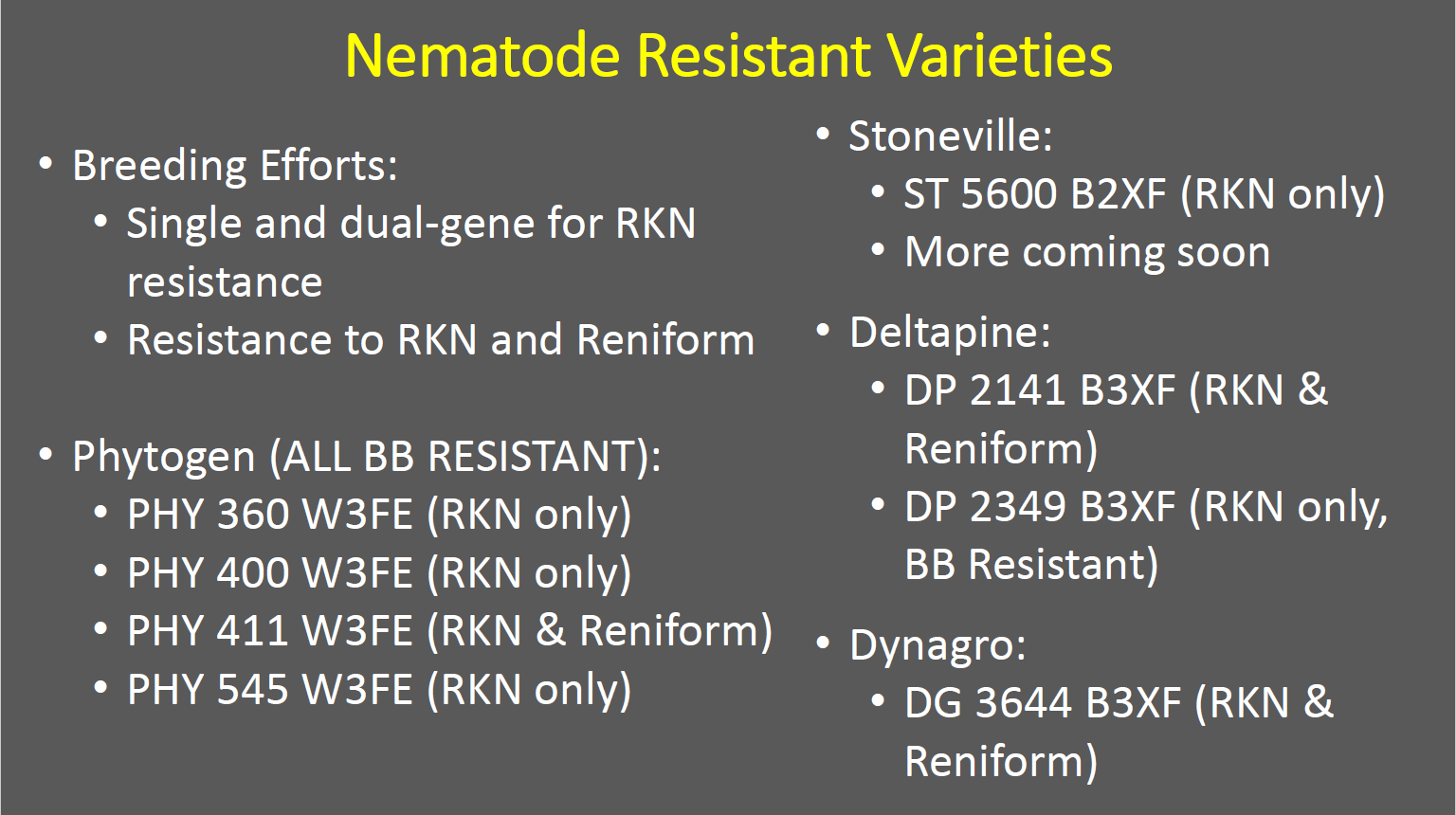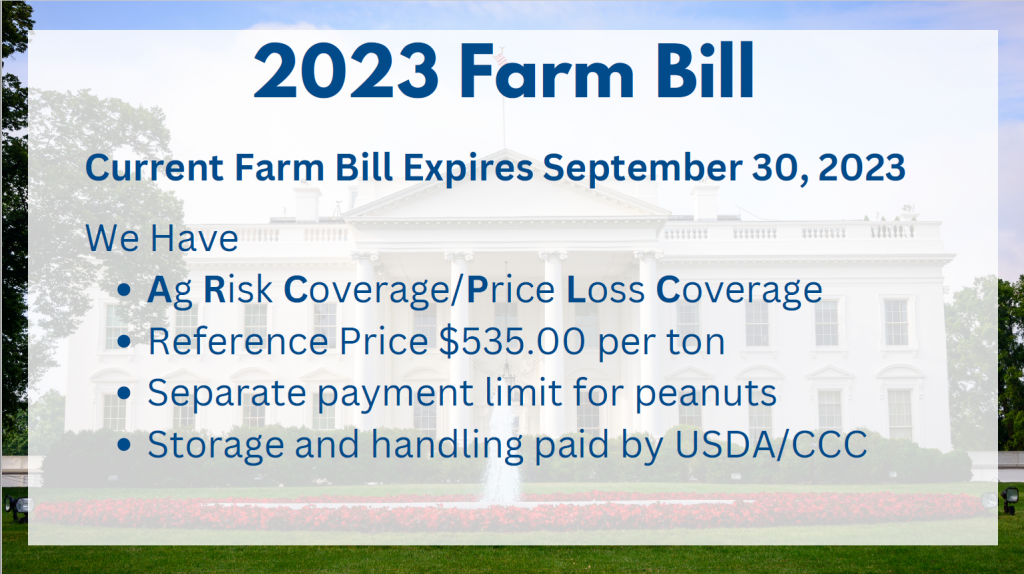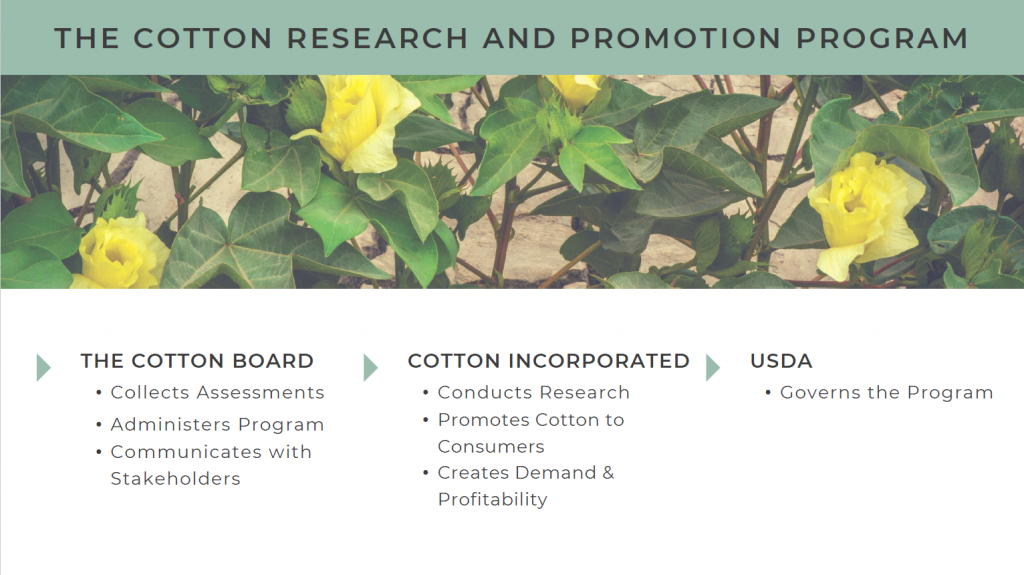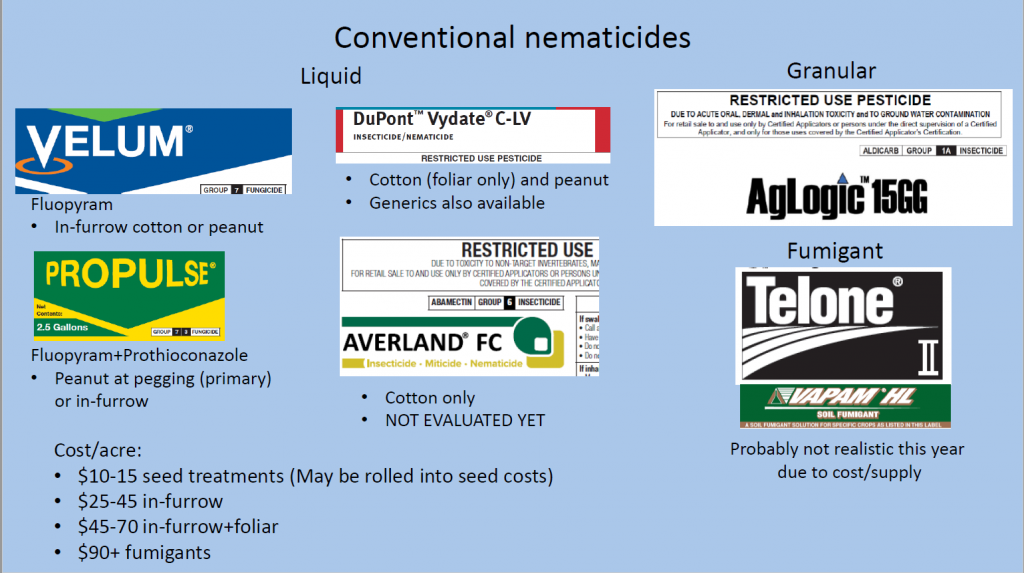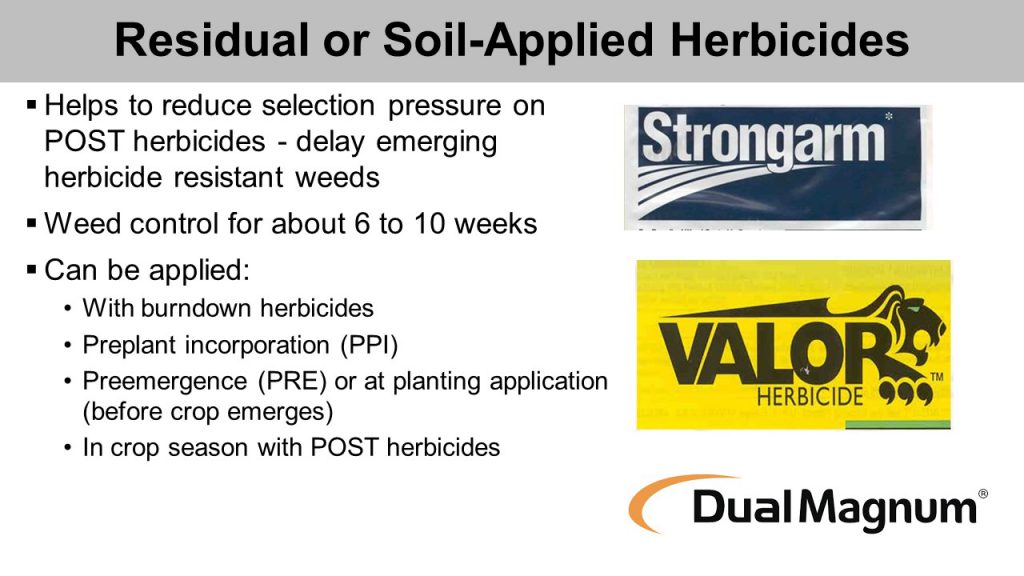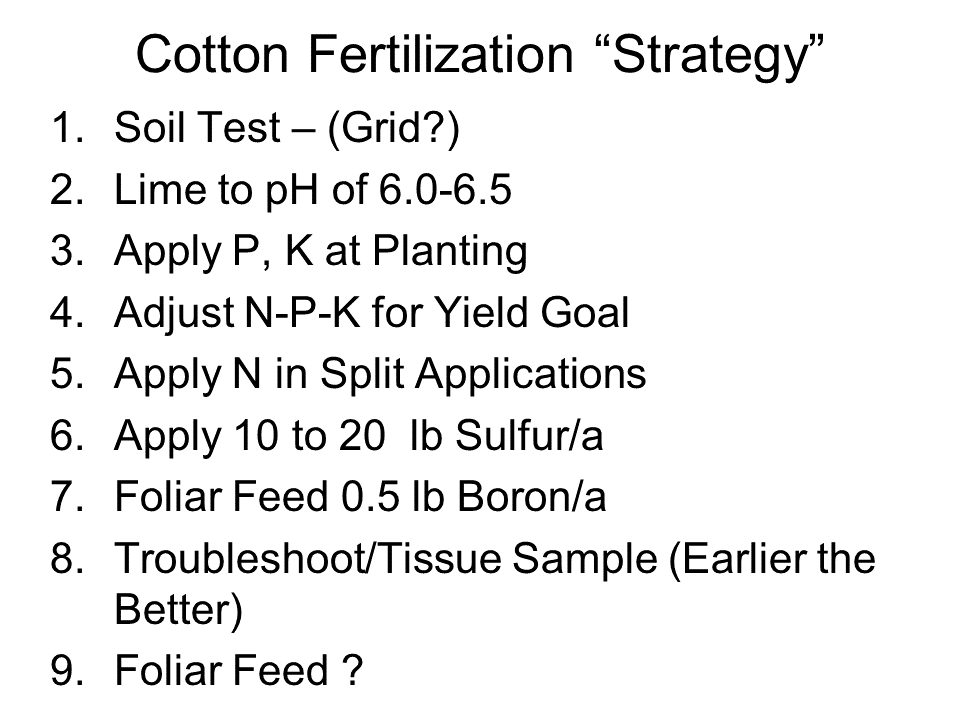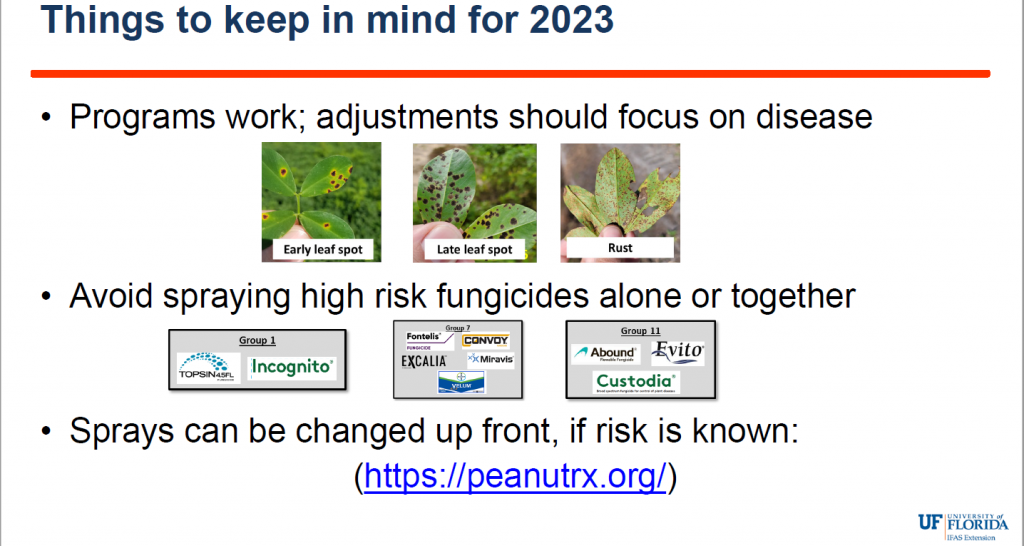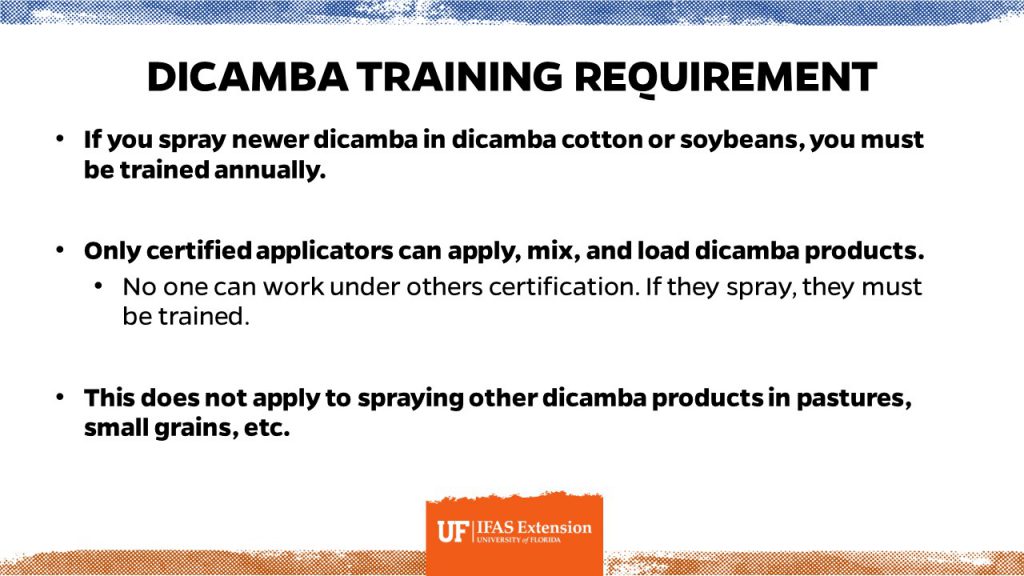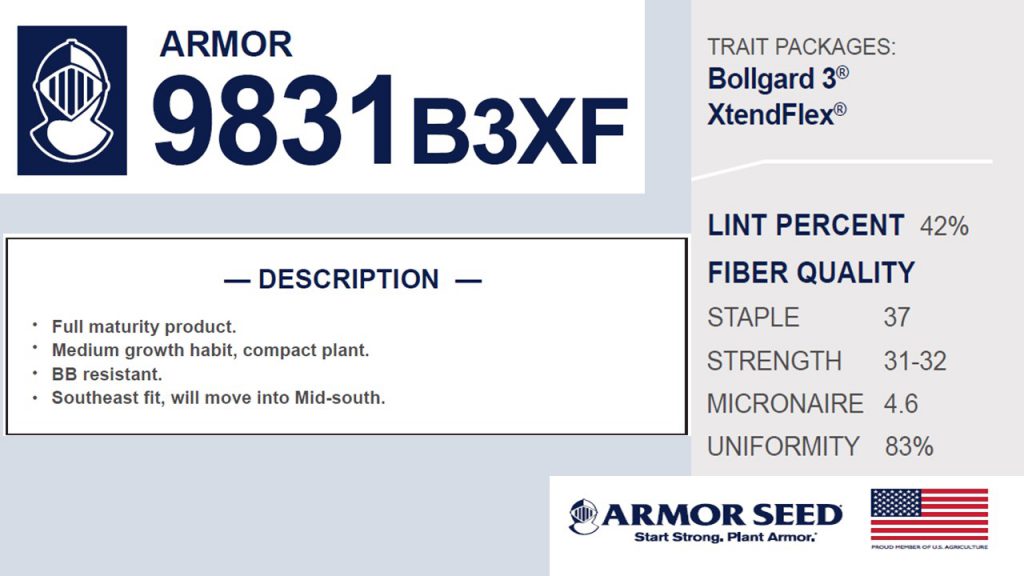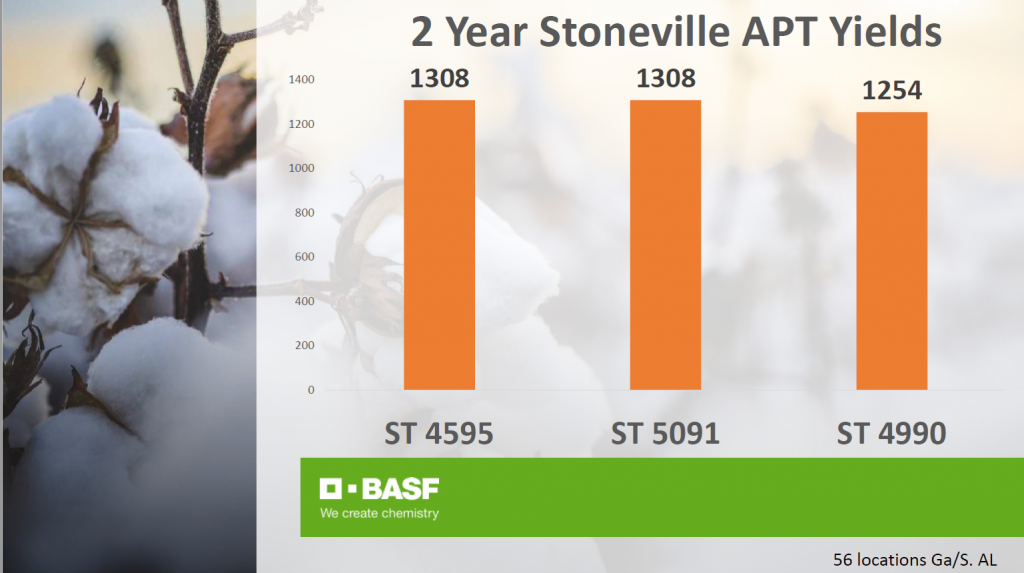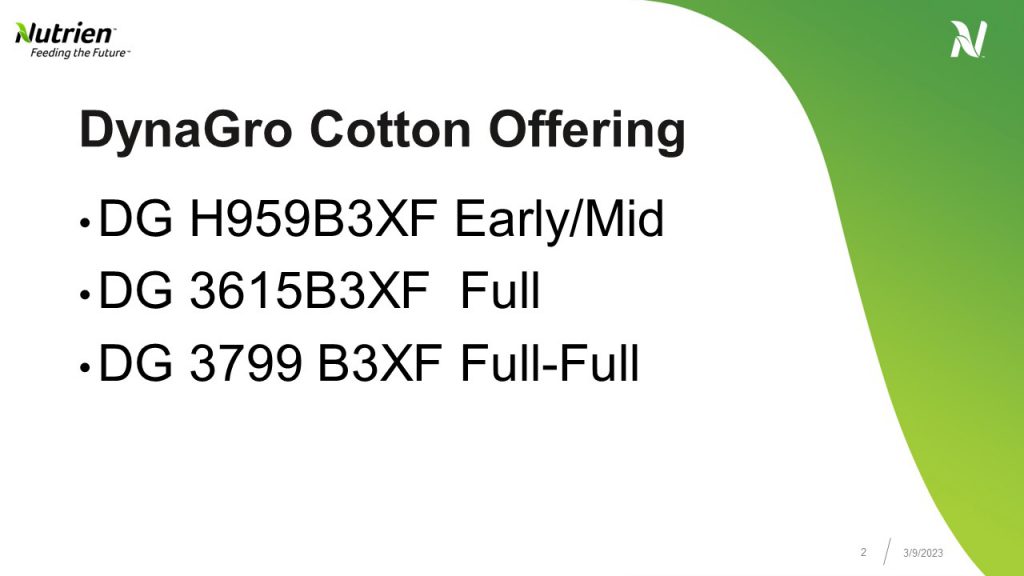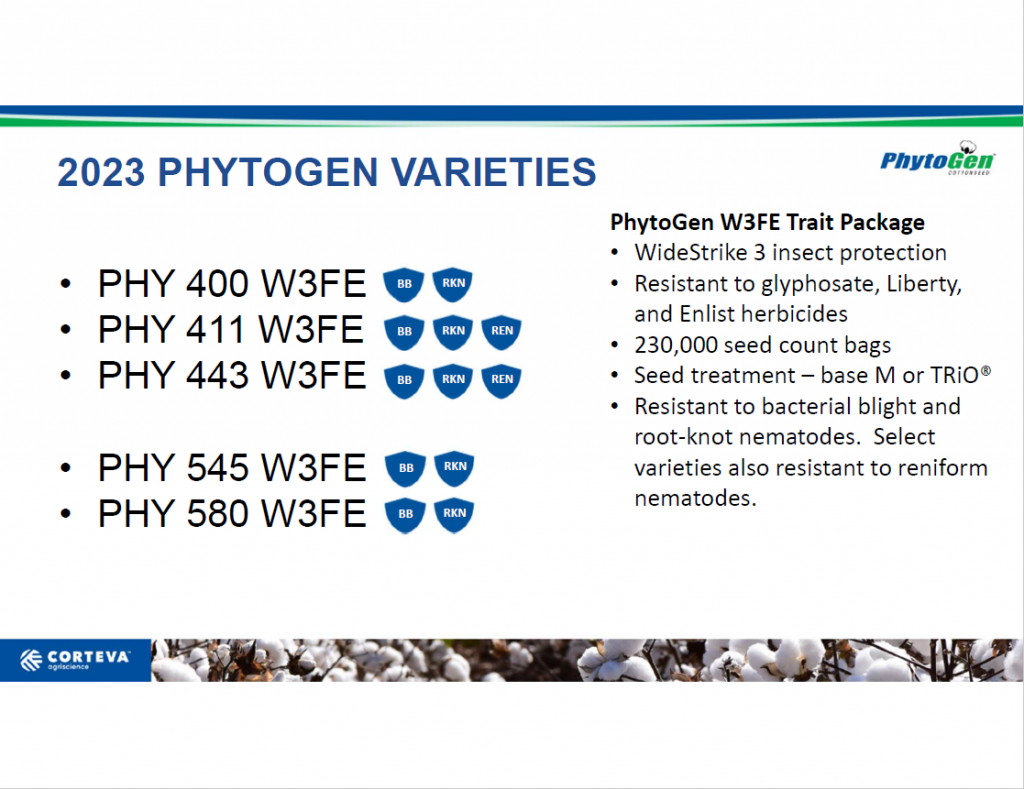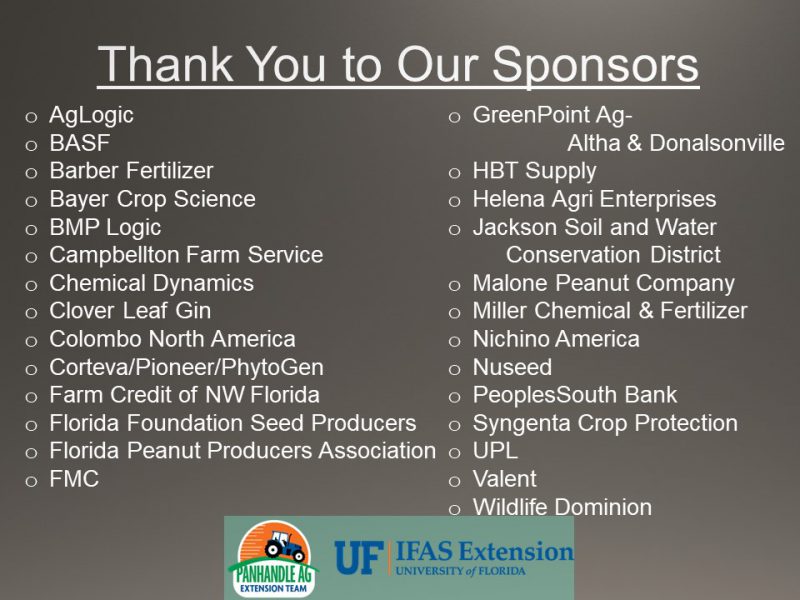The 2023 Panhandle Row Crop Short Course was held Thursday, March 2. The event had record breaking attendance going back at least a decade, with 160 people turning out. Extension Specialists from Florida and Georgia spoke to row crops farmers regarding key production recommendations and tips for the upcoming year. Continuing education units (CEUs) were offered at the event for those with a restricted use pesticide license (Florida and Georgia), as well as for Certified Crop Advisors. This event also met the annual Dicamba Stewardship Training requirement for applications spraying dicamba over top of cotton and soybeans. If you missed this program and still need your 2023 Dicamba Stewardship Training, you can complete it online through UF or an approved industry training (BASF, Bayer, Syngenta).
The focus of this Row Crop Short Course is peanut and cotton production. Speakers included representatives from the Florida Peanut Producers Association, and The Cotton Board, as well as university specialists discussing topics relating to peanut and cotton varieties, fertility management, pest management (disease, weeds, and nematodes) in row crops. The following recap provides a short summary of what was discussed by each speaker, as well as direct links to download PDF (printer friendly) versions of the presentations given at the event.
–
Peanut Variety Selection
Dr. Barry Tillman, UF/IFAS Peanut Breeder, provided peanut variety data from trials across Florida and Georgia demonstrating trends in performance. Hypothetical production situations were used to illustrate management decisions based on factors such as planting date, disease pressure, and risk. He also discussed using variety selection and seed size as an opportunity to lower input costs.
Presentation link: Tillman- Peanut Variety Performance
–
Cotton Variety Performance & Selection
Dr. Camp Hand, UGA Agronomist, presented data on cotton variety performance and selection. Information shared included data on 12 varieties collected from 22 on-farm locations across Georgia. The closest trial locations to Jackson County were Seminole, Lowndes, Miller, Mitchell, and Worth counties. In his talk he mentioned both newer nematode resistant as well as Thryvon varieties and the scenarios where they will likely be most successful.
Presentation link: Hand – Cotton Variety Performance & Selection
–
Florida Peanut Producers Association Update
Brittany Peacock, Program Coordinator for the Florida Peanut Producers Association (FPPA), provided an update on the current status of their promotional efforts and organizational involvement, along with the goals of the FPPA. She also reminded growers that the Southern Peanut Growers Conference will be held this July in Destin.
Presentation link: Peacock – Florida Peanut Producers Update
–
The Cotton Board
Monty Bain, Southeast Regional Communications Manager with The Cotton Board, provided an update on the three functions of the cotton board, activities that they are engaged in, as well as their producer outreach methods and tactics.
Presentation link: Bain – The Cotton Board Update
–
Nematicide Use in Row Crops
Dr. Zane Grabau, UF/IFAS Crop Nematologist, discussed nematode management and resistant variety options for cotton and peanut. Also discussed was the state regulated permitting of aldicarb use (AgLogic) and it’s process for growers. A fact-sheet to help with the aldicarb permitting process is available online.
Presentation link: Grabau- Nematicide Use in Row Crops
–
Peanut & Cotton Weed Management
Dr. Pratap Devkota, UF/IFAS Weed Scientist, discussed control options and strategies of troublesome weeds. His talk included popular residual control options and information regarding activation/activity, as well as effective post emergent applications.
Presentation Link: Devkota – Peanut & Cotton Weed Management
–
Crop Fertility Management
Dr. Glen Harris, UGA Soil Scientist, discussed crop fertility needs, nutrient sources, and overall input N-P-K needs and cost. His talk also included fertilizer timing and requirements by crop.
Presentation link: Harris- Crop Fertility Management
–
Peanut and Cotton Disease Management
Dr. Nicholas Dufault, UF/IFAS Crop Pathologist, discussed disease management in cotton and peanut. Application timing, product performance, and modes of action were discussed.
Presentation link: Dufault- Peanut and Cotton Disease Management
–
Dicamba Stewardship Training 2023: Use in Cotton and Soybean
Dr. Pratap Devkota, UF/IFAS Weed Specialist, discussed the dicamba products registered for over-the-top use in cotton and soybean (XtendiMax, Engenia, and Tavium). Applicators are required by the state to have an annual training certification. All applicators who want the option of applying these products in cotton or soybean are required to have a 2023 Dicamba Training. Applicators using any of these three products on dicamba tolerant cotton or soybean are required to have their own pesticide license, there is no supervision of unlicensed applicators allowed.
Presentation link: Devkota – Dicamba Stewardship Training 2022: Use in Cotton and Soybean
–
Armor Cotton- GreenPoint Ag and Winfield United
Blake Dobson, the rep for Armor cotton discussed the main three cotton varieties that they are pushing for 2023.
- Armor 9371 B3XF (early-mid maturity)
- Armor 9831 B3XF (full maturity)
- Armor 9383 B3TXF (early-mid maturity, has ThryvOn)
Presentation link: Dobson – Armor Cotton Varieties
–
Stoneville Cotton- BASF
Mark Freeman, an agronomist for Stoneville cotton discussed the main three cotton varieties that they are recommending for 2023.
- Stoneville 4595 B3XF (early-mid maturity)
- Stoneville 4990 B3XF (early-mid maturity)
- Stoneville 5091 B3XF (early-mid maturity)
Presentation link: Freeman – Stoneville Cotton Varieties
–
DynaGro Cotton- Nutrien Ag Solutions
Eric Lee, an agronomist for DynaGro cotton discussed the main three cotton varieties that they are recommending in 2023.
- DynaGro H959 B3XF (early-mid maturity)
- DynaGro 3615 B3XF (full maturity)
- DynaGro 3799 B3XF (full-full maturity)
Presentation link: Lee – DynaGro Cotton Varieties
–
PhytoGen Cotton- Corteva Agriscience
Russell Nuti, an agronomist for PhytoGen cotton discussed the main five cotton varieties that they are recommending in 2023. All of which are resistant to both bacterial blight and root-knot nematodes, additionally, two are also resistant to reniform nematodes.
- PhytoGen 400 W3FE
- PhytoGen 411 W3FE
- PhytoGen 443 W3FE
- PhytoGen 545 W3FE
- PhytoGen 580 W3FE
Presentation link: Nuti – PhytoGen Cotton Varieties
–
Sponsors and Trade Show Exhibitors
These 27 companies and organizations took part in the Trade Show and made lunch possible for not only this event, but also the upcoming UF/IFAS Peanut Field Day scheduled for August 10th. We are grateful for everything that they have done for us and the services that they provide for both the Row Crop Short Course and the Peanut Field Day.
- 2025 Peanut Field Day Recap & Speaker Handouts - August 29, 2025
- Peanut Foliar Diseases Exploding Across Florida - August 22, 2025
- Provisional Nitrogen Fertilization Recommendation for Florida Cotton for the 2025 Season - June 20, 2025


